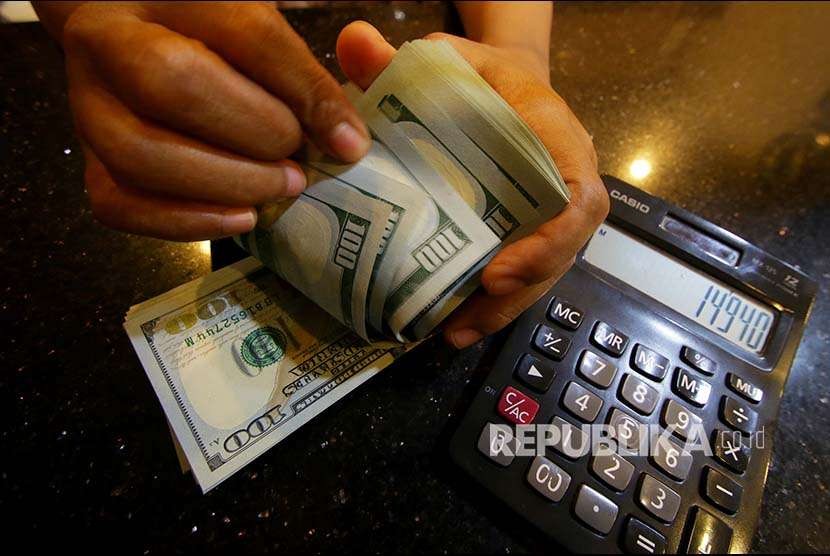REPUBLIKA.CO.ID, JAKARTA -- The Financial Service Authority (OJK) said the country's financial industry could still mitigate the negative impact of the risk of rupiah weakening. Rupiah has depreciated by 8 percent year to date.
The financial industry, especially banking, still has healthy indicators. However, the regulators will continue to be watchful against external economic risks, OJK spokesperson Sekar Putih Djarot said at a meeting here on Monday.
"The financial industry is one of the largest asset contributors in the Indonesian financial system," Sekar said.
The non performing loan ratio of Indonesian banks average 2.73 percent gross. The third party funds held by banks grew 6.8 percent year-on-yearand credits grew 11 percent yoy, Sekar added.
Also read: Govt not yet able to deal with global turmoil
Sekar went on to say capital adequacy ratio (CAR) of the banking industry was 22 percent early September 2018. "Amid the volatility of financial market, the risks in the financial industry are still manageable .The bank CAR is still strong," Sekar said.
Sekar said so far the government, Bank Indonesia and OJK could still handle the impact of liquidity tightening in the global economy. "There has not been tendency toward liquidity tightening in the domestic market," he said.
Sekar said OJK appreciates Bank Indonesia's aggressive market intervention over the past several days, adding OJK would fully support the government and the Central Bank in improving the country's economic condition, and in reducing the current account deficit.
Current account balance is the parameter describing the inflow and outflow of foreign exchange through international trade of goods and services. Sekar said the steps taken by OJK to cope with the current account deficit is by providing macro prudential incentives for banks, which contribute to driving the growth of export oriented industries.
Sekar said OJK would also encourage the Export Financing Agency (LPEI) with export financing facility.
"In our policy, we provide incentive for banks, such as through relaxation of regulation on Risk Weighted Assets (ATMR) for ones contributing to boosting domestic exports. We also encourage LPEI to provide export facility," Sekar said.
Bank Indonesia and the government hope to cut the current account deficit to around 2.5 percent of the GDP by the end of this year from 3.04 percent by the end of the second quarter of this year.
In a bid to keep stability in the rupiah exchange rate, OJK would tighten control over foreign exchange transactions in banks that purchases of foreign exchange tally with the requirement document, Sekar said.
"It is to prevent speculation in foreign exchange purchases that could weaken rupiah," Sekar said.
Earlier, the rupiah exchange rate which transacted between banks in Jakarta weakened 15 points to Rp 14,843 than previous position Rp 14,828 per US dollar on Monday (Sept 10) morning. The improvement on US economic data encouraged the weakening.
“The US dollar strengthened against the majority of world currencies, including the rupiah, driven by improving US economic data," said Samuel Sekuritas economist Ahmad Mikail on Monday (Sept 10).


